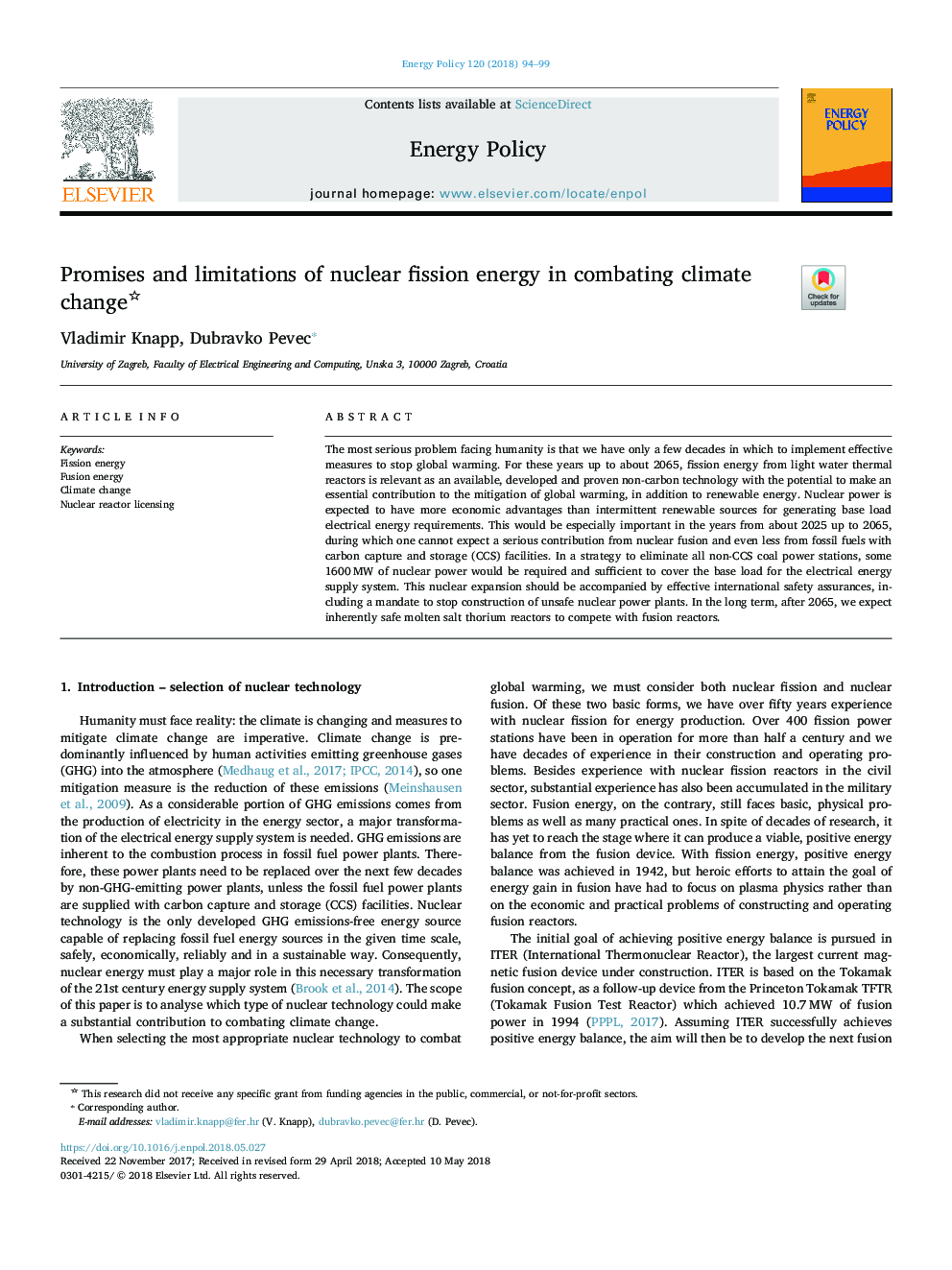| کد مقاله | کد نشریه | سال انتشار | مقاله انگلیسی | نسخه تمام متن |
|---|---|---|---|---|
| 7396994 | 1481238 | 2018 | 6 صفحه PDF | دانلود رایگان |
عنوان انگلیسی مقاله ISI
Promises and limitations of nuclear fission energy in combating climate change
ترجمه فارسی عنوان
وعده و محدودیت انرژی تقسیم هسته ای در مبارزه با تغییرات اقلیمی
دانلود مقاله + سفارش ترجمه
دانلود مقاله ISI انگلیسی
رایگان برای ایرانیان
کلمات کلیدی
انرژی تقسیم، انرژی فیوژن، تغییر آب و هوا، مجوز راکتور هسته ای،
موضوعات مرتبط
مهندسی و علوم پایه
مهندسی انرژی
مهندسی انرژی و فناوری های برق
چکیده انگلیسی
The most serious problem facing humanity is that we have only a few decades in which to implement effective measures to stop global warming. For these years up to about 2065, fission energy from light water thermal reactors is relevant as an available, developed and proven non-carbon technology with the potential to make an essential contribution to the mitigation of global warming, in addition to renewable energy. Nuclear power is expected to have more economic advantages than intermittent renewable sources for generating base load electrical energy requirements. This would be especially important in the years from about 2025 up to 2065, during which one cannot expect a serious contribution from nuclear fusion and even less from fossil fuels with carbon capture and storage (CCS) facilities. In a strategy to eliminate all non-CCS coal power stations, some 1600â¯MW of nuclear power would be required and sufficient to cover the base load for the electrical energy supply system. This nuclear expansion should be accompanied by effective international safety assurances, including a mandate to stop construction of unsafe nuclear power plants. In the long term, after 2065, we expect inherently safe molten salt thorium reactors to compete with fusion reactors.
ناشر
Database: Elsevier - ScienceDirect (ساینس دایرکت)
Journal: Energy Policy - Volume 120, September 2018, Pages 94-99
Journal: Energy Policy - Volume 120, September 2018, Pages 94-99
نویسندگان
Vladimir Knapp, Dubravko Pevec,
